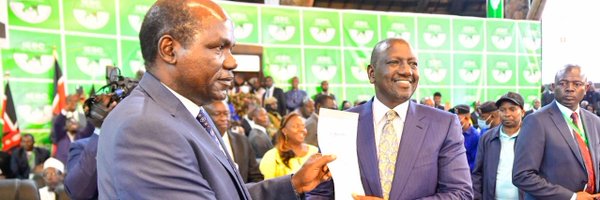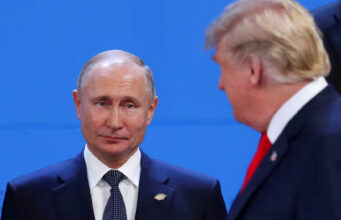NEW DELHI: William Ruto’s electoral victory marks the beginning of his political rehabilitation. The 55-year-old Kenyan who won the presidential election held on August 9 by a narrow 50.49% of the vote – he is expected to be sworn in as president by August 30 – was not supposed to be in politics, let alone run for president. In 2013, he was pushed into the political wilderness after being charged with “crimes against humanity” by the International Criminal Court (ICC). The crimes included “murder, deportation or forcible transfer of population and persecution allegedly committed in the context of the 2007-2008 post-election violence in Kenya.”
But Ruto not only fought off the charges, he came back into active politics, became deputy president, and then won an election that few gave him a chance of winning. Buoyed by his electoral victory, the once tainted politician is now promising change.
“We will have nothing to do with the blackmail we have seen, the threats we have seen, the fear sown around the country amid differing political views. We are having our democratic country back,” he said post the announcement of his victory.
Ruto is facing a challenge from the Opposition leader Raila Odinga who has declared Monday’s election as “null and void” stoking fears that tensions may rise. But what has been encouraging is that the violence that used to mar previous elections was absent this time round. The Commonwealth Observer Group stated in its interim report that the elections were “peaceful and transparent.”
“Ruto has no honeymoon period to enjoy once he enters the state house. While the peace has held, the onus is now on him to make sure that it remains – a tough task,” says Abhishek Mishra, Africa analyst at the ORF. “Once in office, he needs to sort out Kenya’s crippling economic problems. Unemployment is a record high at 6.2% in 2022 – more than twice the level of 2016 along with high inflation and public debt.”
The major problem with Kenya’s public debt is Beijing’s loans. The Central Bank of Kenya says that China accounts for 70% of the debt and given the pandemic and now rising food and energy costs due to the Ukraine war, this will be hard to pay back.
Ruto has taken a tough line on China during his election campaign. “He has promised not only to restructure public loans given by China but also that illegal Chinese immigrants who are seen as taking Kenyan jobs will be deported (Chinese and Nigerians make up the two largest numbers of illegal immigrant groups in Kenya). This is a key concern felt by many Kenyans,” says Mishra.
While Ruto will be looking to make changes on the domestic front there are still question marks on what the foreign policy front. Kenya has strong economic ties with China and has strategic ties with the US on Ukraine. Will he look to change that? Kenya also has performed the role of peacemaker in conflicts in the Horn of Africa which involved Somalia, Sudan, and Ethiopia among others. These peace efforts and other initiatives were pushed by outgoing President Uhuru Kenyatta who was seen as a man of stature. Ruto as deputy president was very much overshadowed and little is known on how much he would want to get involved. There is much to be resolved domestically.
Nevertheless, a stable Kenya will be good news for the rest of the world and an opportunity for India. Though observers believe that it will be status quo as far as India, there is much that New Delhi can do to reassure not just Kenya but other African nations. India is taking over the G20 presidency in December this year and insisting on the forum becoming a G21 by including the African Union would go a long way in strengthening ties with all African nations who are being squeezed by China, US, and Russia. It would establish Delhi as a player with African interests at heart.
















